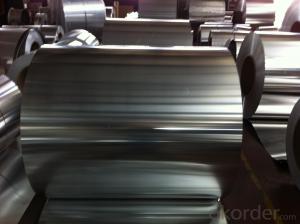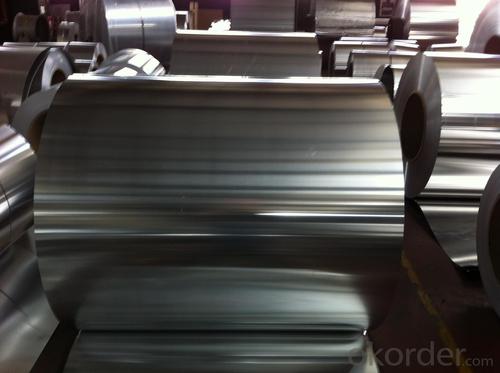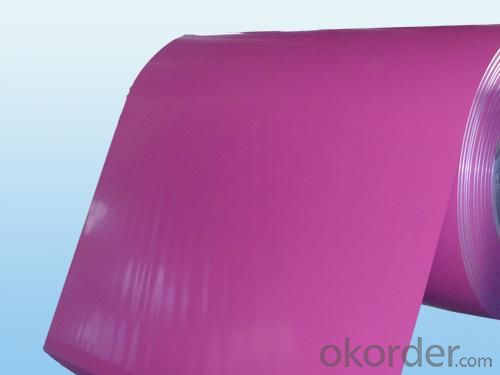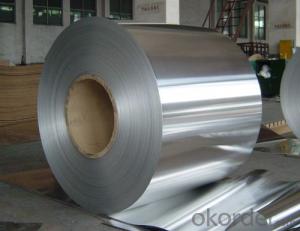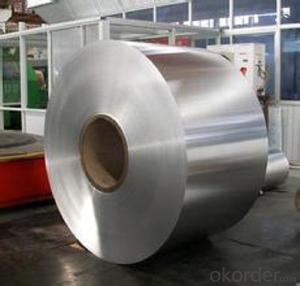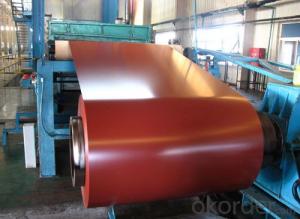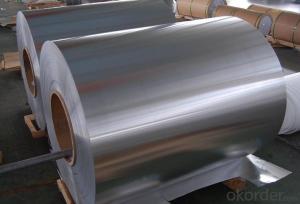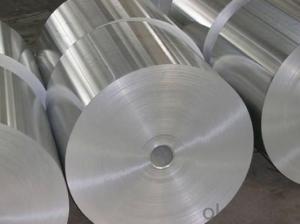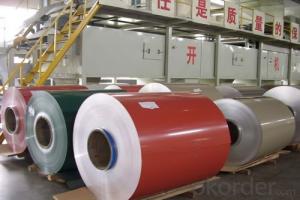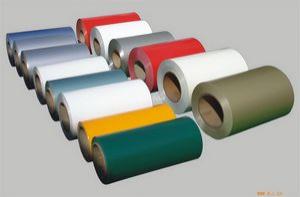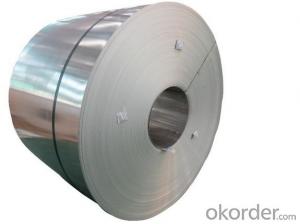49 Inches Continuous Rolling Aluminum Coils for Composite Panel
- Loading Port:
- Shanghai
- Payment Terms:
- TT OR LC
- Min Order Qty:
- 5 m.t.
- Supply Capability:
- 1000000 m.t./month
OKorder Service Pledge
OKorder Financial Service
You Might Also Like
Specification
1.Structure of Continuous Rolling Aluminum Coils for Composite Panel
Continuous Rolling Aluminum Coils for Composite Panel is one semi-finished aluminium material. This strip can be rolled down to aluminium coil,sheet,circle ect. The alloy AA1050 is widly used in building, industry ect. Its weight is much lower than steel. So many customers choosed aluminium material instead of steel.
2. Main features of Continuous Rolling Aluminum Coils for Composite Panel
a.Competitive price---We have our own mills and can produce mill finished aluminium coils, so we can control the production cost better.
b.Professional after-sale service---We havemore than 15 years exportation experience and you need not worry about the exporation problems.
c.Fast delivery time---We can control the delivery time within 35 days.
3. Image of Continuous Rolling Aluminum Coils for Composite Panel
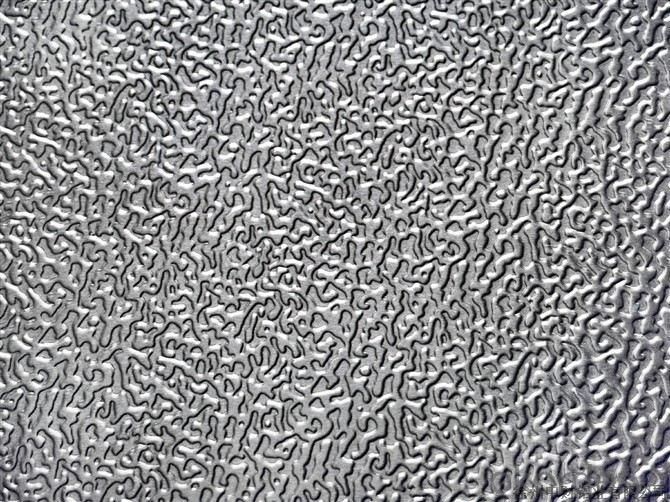
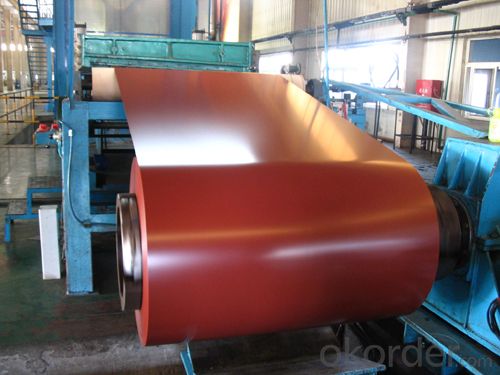
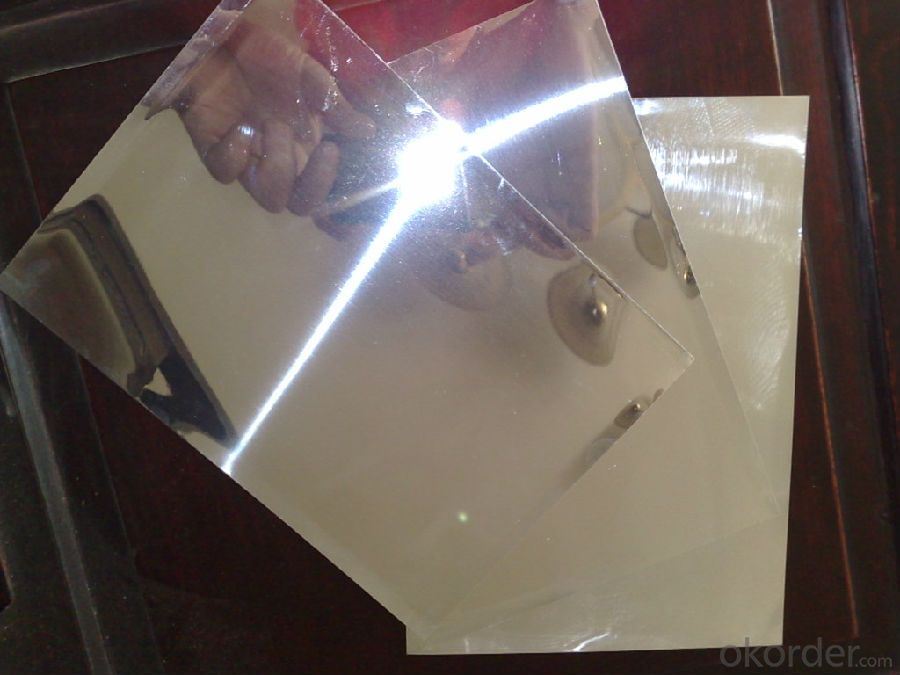
4. Product Specification
| ALLOY | TEMPER | THICKNESS | COATING | WIDTH |
| AA1050 | H22 | 0.2MM-3MM | 22-25 MICRONS | 1200MM-1500MM |
5.FAQ:
What is the quality standard?
---Usually our standard is GB3880-2006
What is the largest width?
---It is 2300mm
What is the MOQ?
---Usually we can accept 80 tons.
- Q: How do aluminum coils contribute to architectural design flexibility?
- Aluminum coils contribute to architectural design flexibility by offering a lightweight and durable material that can be easily formed into various shapes and sizes. This flexibility allows architects to create unique and innovative designs, including curved or intricate facades, roofs, and cladding systems. Additionally, aluminum coils can be coated in a wide range of colors and finishes, providing architects with endless possibilities to enhance the aesthetics of their designs.
- Q: What are the different types of aluminum coils available?
- There are several types of aluminum coils available, including painted coils, embossed coils, brushed coils, anodized coils, and perforated coils. Each type offers unique characteristics and applications, catering to various industries and aesthetic preferences.
- Q: This question asks for an explanation of the various materials used for coating aluminum coils.
- <p>Aluminum coil coating materials can be categorized into several types, including: 1. Organic coatings, such as polyester, acrylic, and polyvinylidene fluoride (PVDF), which offer good weather resistance and color stability. 2. Inorganic coatings, like fluoropolymers, which provide exceptional chemical resistance and high-temperature stability. 3. Metal coatings, such as zinc or other metals, used for enhanced corrosion resistance. 4. Ceramic coatings, which are known for their high durability and resistance to heat and chemicals. 5. Laminates, which combine multiple materials for specific performance characteristics. These coatings are chosen based on the intended application of the aluminum coil, such as in construction, automotive, or packaging industries.</p>
- Q: What is the typical coil width for aluminum coils?
- The typical coil width for aluminum coils can vary depending on the specific application and industry. However, in general, the coil width for aluminum coils can range from a few inches to several feet. Common coil widths for aluminum coils used in construction, automotive, and packaging industries typically range from 12 inches to 72 inches. These coil widths are often selected based on the requirements of the manufacturing process, the final product dimensions, and the equipment used for coil processing. It is important to note that specific coil widths may be customized based on the customer's needs and production capabilities of the aluminum coil manufacturer.
- Q: My school has lunched catered in daily because it cuts down on staff in the kitchen. The food is delivered in individual aluminum containers for each student. In doing so, the school uses 99,000 aluminum trays in one school year, all of which get thrown away. I'm trying to find an alternative such as biodegradable food containers. Does anyone have any ideas? The container has to be able to withstand the heat of an oven.
- Maybe you could look into recyclable paper containers such as those that pizza places use? I'm always a big fan of materials like pyrex glass containers as they're reusable, strong, and can be returned to the company and sterilized.
- Q: Are aluminum coils resistant to oil and grease?
- Yes, aluminum coils are generally resistant to oil and grease.
- Q: How do aluminum coils compare to other metal coils like steel or copper?
- Aluminum coils have several distinct advantages compared to other metal coils like steel or copper. Firstly, aluminum is much lighter in weight, making it easier to handle and transport. Additionally, aluminum has excellent corrosion resistance, ensuring durability and longevity in various environments. Furthermore, aluminum coils have superior thermal conductivity, allowing for efficient heat transfer. Lastly, aluminum is more cost-effective compared to copper, while still providing reliable performance. Overall, aluminum coils offer a compelling combination of lightweight design, corrosion resistance, thermal conductivity, and cost-effectiveness when compared to steel or copper coils.
- Q: What are the different surface protection methods for aluminum coils?
- There are several surface protection methods available for aluminum coils to prevent corrosion and maintain their aesthetics. 1. Anodizing: Anodizing is a widely used method that creates a protective oxide layer on the surface of the aluminum coil. This process involves immersing the coil in an electrolytic solution and passing an electric current through it. Anodized aluminum coils have enhanced resistance to corrosion, abrasion, and weathering. 2. Coating: Aluminum coils can be coated with various protective coatings to enhance their durability and resistance to environmental factors. These coatings can be organic or inorganic, such as polyester, polyvinylidene fluoride (PVDF), epoxy, acrylic, or polyurethane. Coated aluminum coils provide excellent protection against UV radiation, chemicals, and abrasion. 3. Cladding: Cladding involves applying a layer of a different metal, such as stainless steel or zinc, onto the surface of the aluminum coil. This provides added protection against corrosion and improves the overall strength and appearance of the coil. 4. Laminating: Laminating involves bonding a protective film onto the surface of the aluminum coil. This film can be made of various materials, such as PVC or PET, and serves as a barrier against scratches, stains, and UV radiation. 5. Chemical conversion coating: Chemical conversion coatings, such as chromate or phosphate coatings, can be applied to aluminum coils to enhance their corrosion resistance. These coatings chemically react with the aluminum surface, forming a protective layer that inhibits corrosion. 6. Waxing: Applying a layer of wax onto the surface of aluminum coils is a simple and cost-effective method to protect against corrosion and maintain the coil's appearance. The wax provides a barrier against moisture, chemicals, and contaminants. It is important to choose the most suitable surface protection method based on the specific requirements and intended use of the aluminum coils. Factors such as the desired level of corrosion resistance, aesthetics, durability, and environmental conditions should be considered when selecting the appropriate method.
- Q: Is it possible to utilize aluminum coils for the purpose of storage?
- <p>Yes, aluminum coils can be used for storage, particularly in industrial settings. They are often used for storing materials such as paper, plastic films, and other coilable products. Aluminum coils are lightweight, corrosion-resistant, and can be easily transported and handled. They are also recyclable and environmentally friendly. However, their suitability for storage depends on the specific application and the type of material being stored. It's important to ensure that the coils are stored in a dry, clean environment to prevent damage and maintain their integrity.</p>
- Q: 94 f150. have the stock wheels which are weathered and dull. whats a good way to bring the shine back? some of the original coating is there ,most is gone. tried mothers aluminum wheel polish,does nothing. is it wise to use a wire wheel in a drill to get down to just the aluminum? the wheels are those with the center plastic cap with holes around the outer edge.thanks for any info
- I am not sure if you can sand them down an put a clear coat on them? I can say this is why you see older vehicles with plasti-dip coatings, to cover up the dings, curb rash and peeling clear coat, and the cost is lower than replacement. List your city and state. In my area there is wheel specialty shop that does tig welding repairs and will do a factory refinish. Look for one of those places. Or buy new rims and sell the old ones online.
Send your message to us
49 Inches Continuous Rolling Aluminum Coils for Composite Panel
- Loading Port:
- Shanghai
- Payment Terms:
- TT OR LC
- Min Order Qty:
- 5 m.t.
- Supply Capability:
- 1000000 m.t./month
OKorder Service Pledge
OKorder Financial Service
Similar products
Hot products
Hot Searches
Related keywords
